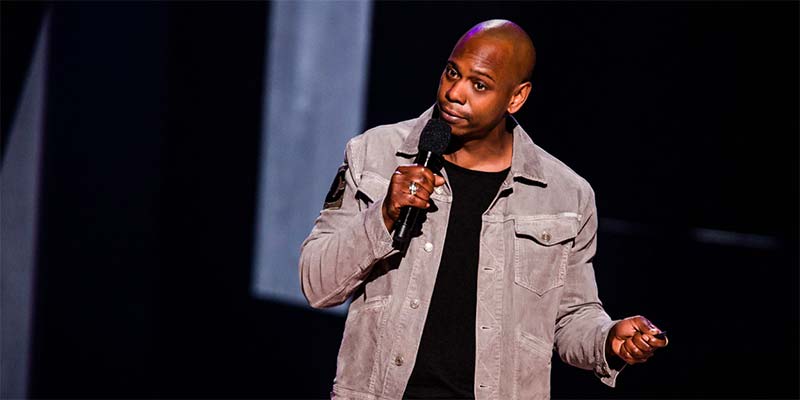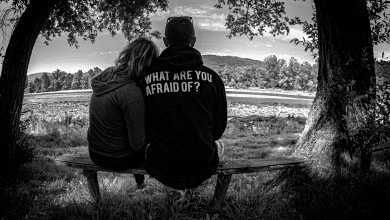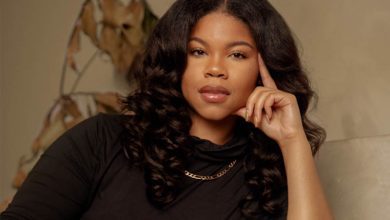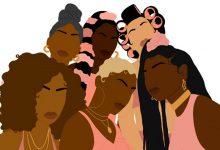

In his latest special Equanimity, Dave Chappelle takes on what feels like an arrogant tone to defend and explore the evolution of his relationship to fame, fortune, and Hollywood. He cites class struggles and divisions, the 2016 election and the resulting president, and transgender issues to assert what he feels is the biggest problem plaguing our contemporary society – political correctness. In his words, America has developed “brittle ears,” and, to a certain extent, he is right.
While p.c. culture pervades our current societal landscape, precluding our ability to have difficult, yet impactful conversations, we also need to examine the shifts of the person on the other end of the microphone. ThisvChappelle is not the same performer who abruptly exited Hollywood more than a decade ago; nor does he pretend to be. The evidence is in his stand-up.
At the very beginning of his special, Chappelle, introduces a new tone, one that really teeters the line between performed confidence and semi-latent conceit. He brags about his skills, stating that his abilities have made creating comedy so easy that he may run off again. This threat leaves me feeling almost like a hostage with Stockholm Syndrome, afraid to be abandoned for another twelve years. He sets out to prove his superior talents by providing us with the punchline first – “so I kicked her in the pussy.” While there were laughs along the journey to the pre-released punchline, it, quite frankly, wasn’t funny. Actually, it was a bit concerning that violence against a woman is intended to generate laughter; this discomfort is further exacerbated considering it involves a young Chappelle assaulting his friend’s mother for not having enough Stove Top stuffing to go around.
To be clear, I am not someone who takes herself so seriously that she is unable to laugh at problematic scenarios; it simply was not funny. This bit fails to do its intended work and support his claim that he is so good at stand-up that he can write jokes backward. In other words, there is no reward (my laughs) to justify the controversy (enacting violence against women). The fact that he thought it was a demonstration of his wit, solidifies his new tone as arrogance.
We learn though that this arrogance is a shield. It is in response to the trauma he experienced working within the industry. He uses it to assert himself outside of the expectations of Hollywood executives and all those watching. Once you understand this, it makes it a bit easier to enjoy his routine. There are not as many laughs per minute as his earlier work, but he gives you a lot to think about as he offers himself as the sacrificial mirror, illuminating the politically incorrect areas of our thinking and ways of being; whether it is saying “yuck” at the thought of Caitlyn Jenner posing nude for Sports Illustrated or comparing voting for Hillary Clinton to having Halle Berry fart in your face whilst performing cunnilingus, Chappelle risks saying the unpopular.
Despite his shift in tone, what I find to be the most interesting is his employment of what seems to be a unique technique to stand-up, or at the very least, to his routines. He uses these poetic historical contextualizations that conjure a sort of pride and promise within audiences. In this special, it is his retelling of the murder of Emmett Till. These moments demonstrate that Chappelle is just as captivating of a storyteller as he is a jokester. It also proves him to be a master manipulator. After giving us this real “American” narrative that reinforces our belief in the Dream, democratic justice, or the age-old strategy of minorities laughing at their pain, he cusses out the aged white woman who told the lie that got the little boy tortured and murdered. We laugh. We laugh because it is the only immediate response we have from being moved from pride to pain in a few short seconds. This is the beauty of his new technique; it reminds us that laughter has many meanings.
Several of my friends, (and I am sure other critics as well) have mentioned that Chappelle is not as funny as he used to be. This may be true. But I no longer watch Chappelle just to laugh. He makes me think. He forces me to understand the ways in which he is creating and revising the genre of stand-up. He forces me to consider the promises and perils of what it means to be American and everything in between.






